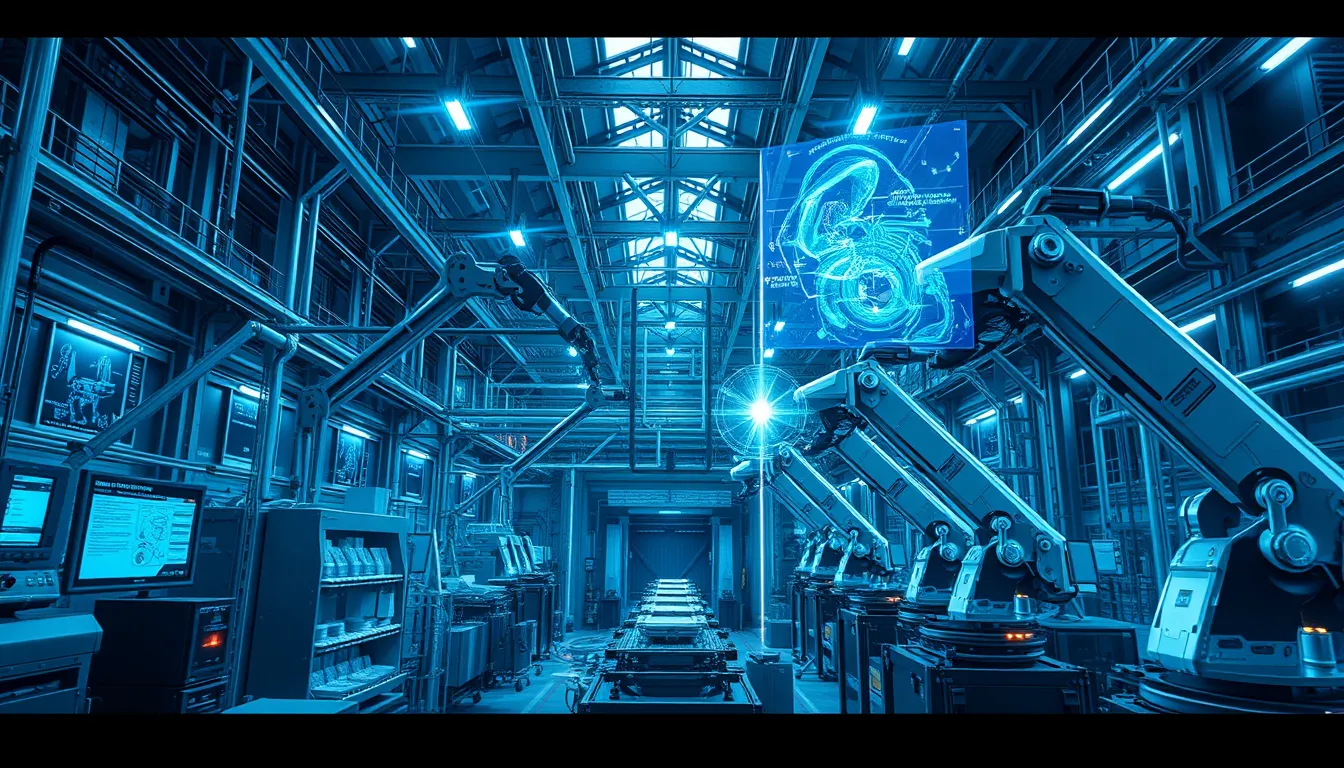Now Reading: Powerful AI in Healthcare Diagnostics: Boosting Patient Care
-
01
Powerful AI in Healthcare Diagnostics: Boosting Patient Care
Powerful AI in Healthcare Diagnostics: Boosting Patient Care

Powerful AI in Healthcare Diagnostics: Boosting Patient Care
The rapid evolution of technology has paved the way for revolutionary advances in healthcare. Among these innovations, AI in healthcare diagnostics is leading the transformation by enhancing diagnostic accuracy, optimizing patient care, and speeding up medical imaging procedures. This article explores the importance of AI in healthcare diagnostics, how it improves medical processes, and the challenges faced by medical professionals as they integrate AI solutions into their systems.
The Role of AI in Healthcare Diagnostics
Artificial intelligence has become a cornerstone of modern medicine. AI in healthcare diagnostics is not only transforming how diseases are detected but also empowering doctors with advanced tools to improve patient outcomes. By analyzing large volumes of data, AI systems can diagnose conditions swiftly and more accurately than traditional methods. This bridge between technology and medicine continues to reduce human error and improve health outcomes.
How AI Improves Diagnostic Accuracy
One of the most significant benefits of incorporating AI into diagnostic processes is its ability to improve accuracy. Here are some key ways AI enhances our diagnostic systems:
- Automated analysis of medical imaging improves the detection of anomalies.
- AI systems learn from extensive datasets to identify patterns that human eyes might miss.
- Integration with electronic health records (EHRs) allows for a more personalized approach to diagnosis using historical patient data.
- Predictive analytics help forecast disease progression, enabling timely intervention.
For example, modern AI diagnostic tools are gradually becoming an essential part of radiology departments. By utilizing machine learning algorithms, these tools detect subtle patterns within imaging scans that can lead to early identification of diseases like cancer. Medical professionals now rely on AI-driven insights to make more informed decisions, ultimately leading to better patient care.
Transforming Medical Imaging and Disease Prediction
AI in healthcare diagnostics also covers the realm of medical imaging, where accuracy and speed are critical. Recent advances in imaging technology have been further enhanced by algorithms that process images faster with greater precision. These systems are particularly effective when diagnosing conditions that require early intervention. Furthermore, AI disease prediction offers an exciting prospect by using patient data to forecast potential health issues before they become critical.
- Faster processing time for imaging studies.
- Higher consistency in image analysis across different diagnostic centers.
- Improved diagnostic outcomes through error reduction.
- Enhanced predictive capabilities that support preventative care and early treatments.
Addressing Challenges in AI Integration
While the advantages of AI in healthcare diagnostics are evident, integration comes with its own set of challenges. One of the primary concerns is data security and patient privacy. Strict regulations must be followed to ensure that sensitive medical data is handled with care. Additionally, there is a learning curve associated with adopting new technology. Healthcare professionals require robust training to effectively use these systems without compromising existing diagnostic workflows.
To address these challenges, medical institutions are investing in comprehensive training programs and securing partnerships with reputable AI technology providers. For instance, companies like OpenAI and Google are working closely with healthcare providers to ensure that AI tools are both effective and secure.
The Future of AI in Healthcare Diagnostics
Looking ahead, the influence of AI in healthcare diagnostics is only expected to grow. Continued research and investment in this field are likely to foster breakthroughs that not only refine diagnostic methods but also enhance overall patient care. Emerging trends indicate that AI will become increasingly integral in predictive medicine and personalized treatment plans. As healthcare systems evolve, practitioners must be proactive in embracing these technological advances to improve health outcomes on a global scale.
Key Takeaways
- AI in healthcare diagnostics is revolutionizing patient care by improving accuracy and speeding up diagnosis.
- Advances in medical imaging powered by AI contribute to earlier disease detection and better treatment outcomes.
- While challenges exist, proper training and data security measures can help mitigate these issues.
- The future of diagnostic medicine is bright, with AI paving the way for more predictive, efficient, and personalized healthcare.
In conclusion, the integration of AI in healthcare diagnostics offers tangible benefits that extend from enhanced imaging techniques to more reliable disease prediction. As the healthcare landscape continues to evolve, professionals must balance innovation with patient privacy and data security. Embracing AI technologies will not only streamline diagnostic procedures but also set new standards for patient care, thus transforming the future of medicine. The evolution of AI is a testament to the limitless possibilities of merging technology with healthcare, ultimately aiming to save more lives and improve the quality of care across the globe.

























